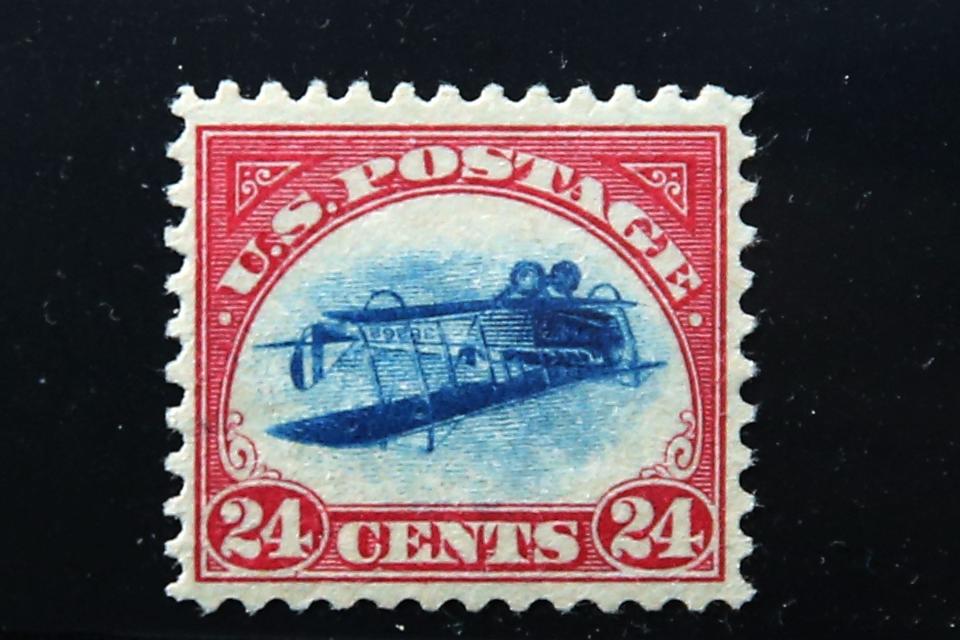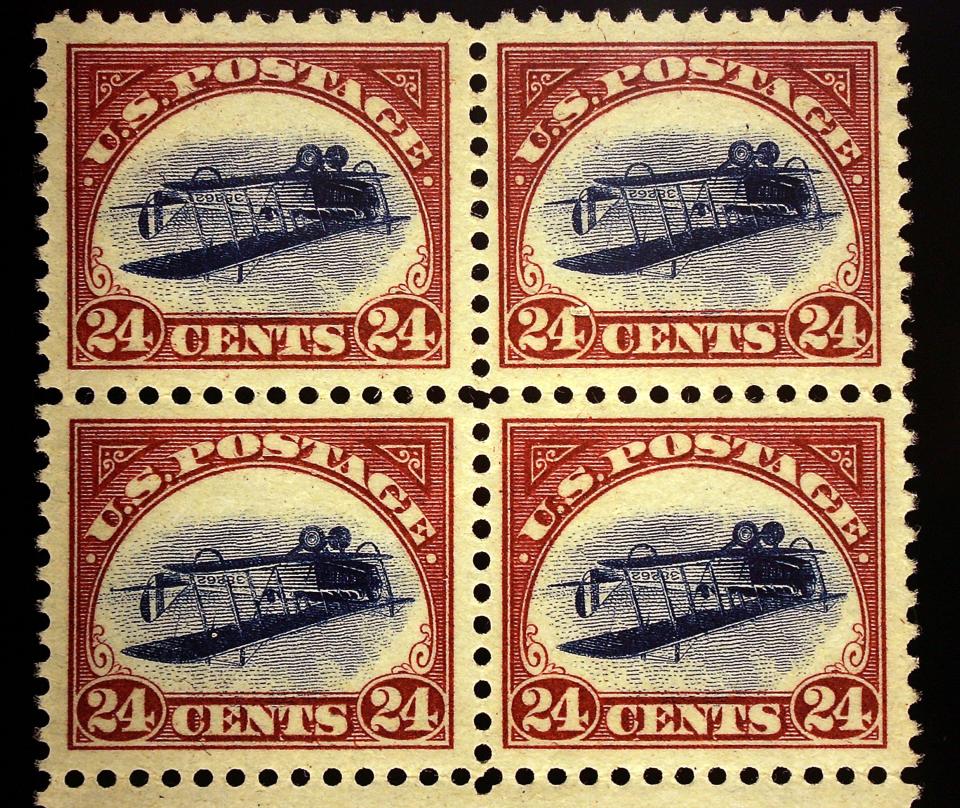Rare Inverted Jenny stamp sold at auction for record-breaking $2 million to NY collector
An ultra-rare stamp depicting an inverted Jenny airplane has been sold for a record $2 million at a New York auction, making it the most expensive U.S. stamp ever sold.
A 76-year-old New York man named Charles Hack purchased a rare postage stamp for a record-breaking price of $2 million at an auction on Wednesday.
The Inverted Jenny postage stamp features a Curtiss JN-4 airplane printed upside down by mistake, making it highly valuable since the production was stopped. The stamp's fame is due to its rarity and a printing error that resulted in an upside-down plane.
It's "the holy grail of postage," Hack told The Washington Post. And a piece of "American history."
The Inverted Jenny stamp is a highly coveted and iconic piece among philatelists. It is a rare collectible created to commemorate the inauguration of the first regular airmail service in the United States.

The stamp is red, white, and blue colored and features an image of the Curtiss JN-4 airplane in the center, though it is printed upside down in error.
According to the Smithsonian's National Postal Museum, William T. Robey bought the first sheet of 100 Inverted Jenny errors on the stamps' release day, May 14, 1918, in Washington D.C., New York, and Philadelphia. Each stamp was originally worth $0.24.
The stamp sold on Wednesday is the finest Inverted Jenny in existence, according to Siegel auctioneers. It came from Position 49 on the sheet. Siegel auctioneers state that the item has been kept in a bank vault for 100 years and in the dark since its purchase in 2018.
Hack has been collecting stamps, including Inverted Jennys, since his childhood. In the early 2000s, he purchased an Inverted Jenny stamp for about $300,000. Hack stated to the Post that he plans to continue to protect the stamp from light and preserve it as it holds great value to him.

Where was the rare stamp featured?
The Inverted Jenny stamps have become popular in pop culture. In a 1993 episode of "The Simpsons," Homer Simpson finds a sheet of stamps at a flea market but disregards them. Homer sifts through a box of American artifacts and discovers a sheet of Inverted Jennys.
Richard Pryor's character in the 1985 movie "Brewster's Millions" uses the stamp to mail a postcard.
It appeared in the 2019 episode "One Big Happy Family" of the legal drama For the People.
Controversy from Inverted Jenny stamp
In November 2006, during an election in Broward County, Florida, workers claimed to have discovered an Inverted Jenny stamp attached to an absentee ballot envelope. However, the sender did not provide any identification along with the ballot, so the ballot was automatically disqualified.
Peter Mastrangelo, the executive director of the American Philatelic Society, noted that the stamp needed to be more genuine as it differed from known copies, mainly due to its perforations. However, the colors had been reproduced accurately. Further investigations published the following month confirmed that the stamp was indeed a forgery.
This article originally appeared on USA TODAY: Inverted Jenny stamp, a rare item, sold for $2 million to New York man
